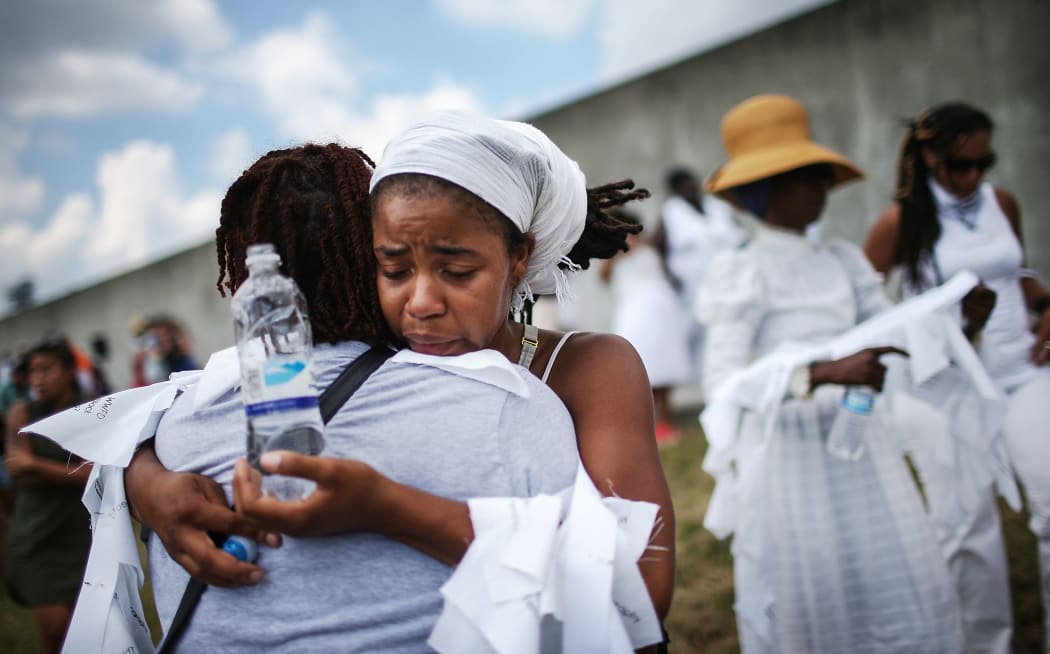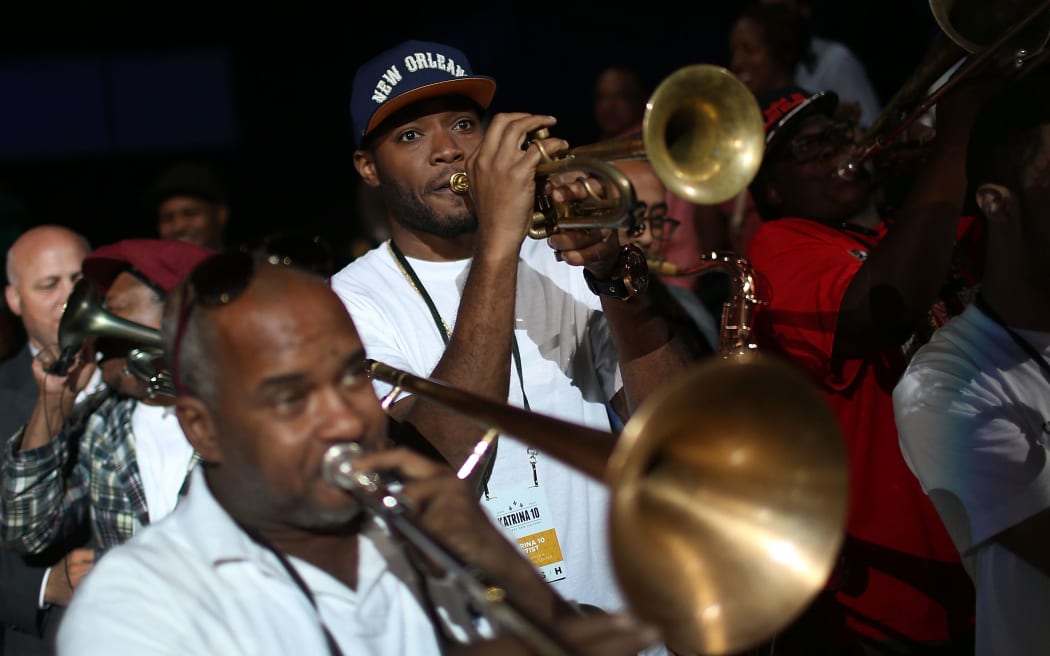New Orleans is marking the 10th anniversary of Hurricane Katrina, paying tribute to its victims and to the southern US city's resilience in the face of disaster.

Two women hug in front of the repaired levee wall in New Orleans' Lower Ninth Ward. Photo: AFP
The city launched a day of events, paying tribute to the hurricane's victims and homage to the strength of the city's residents.
Dignitaries made speeches to honour those who died, brass bands marched through the streets and neighbours gathered for parties across the city, where the mood shifted in turns from sombre to reflective to celebratory.
The "second line" parade, central to the New Orleans African-American musical tradition, played a prominent role.
The marching brass bands and the crowds they attract are survivors whose status is more celebrated than ever: a parade on Saturday in the blighted Lower Ninth Ward, accompanied by some of the city's best known brass bands, has been billed as the biggest in the Big Easy yet.
US President Barack Obama visited the Lower Ninth Ward on Thursday, praising "the extraordinary resilience of this city and its people".
He said that what started as a natural disaster had become a man-made disaster and a failure of government to look out for its citizens.
At a memorial service for the 1500 who died, Mayor Mitch Landrieu recalled how residents had turned to each other for support.
"We saved each other," the mayor added. "New Orleans will be unbowed and unbroken."

Band members parade on the 10th anniversary of Hurricane Katrina in New Orleans. Photo: AFP
Residents and community activists gathered at the levee in the Lower Ninth Ward, where storm waters broke through and flooded the district. A ceremony was also held at the Superdome arena that housed thousands of displaced people after the storm.
Former US President Bill Clinton later spoke at a concert in the city, saying more work needed to be done so that the lines that divided communities - such as race and wealth - could be erased.
But although the city has largely recovered from the disaster, some - particularly from the African-American community - feel left behind.
Dwight McKenna, publisher of African-American newspaper New Orleans Tribune, said that rebuilt public housing projects were now too expensive for many poor black people to move back to.
"The population of New Orleans ... is 100,000 less black people than prior to Katrina. Black people have been left out of the recovery altogether," he said.
Hurricane Katrina killed nearly 2000 people and displaced one million. It was the most expensive natural disaster in US history and caused destruction along the Gulf coast.
In New Orleans, the failure of the levee system left about 80 percent of the city under water.
Mayor Landrieu led a sombre tribute to the 83 unidentified victims whose bodies lie in mausoleums at the city's Hurricane Katrina Memorial.
"Though they are unnamed, they are not unclaimed because we claim them," he said.
- BBC, Reuters

